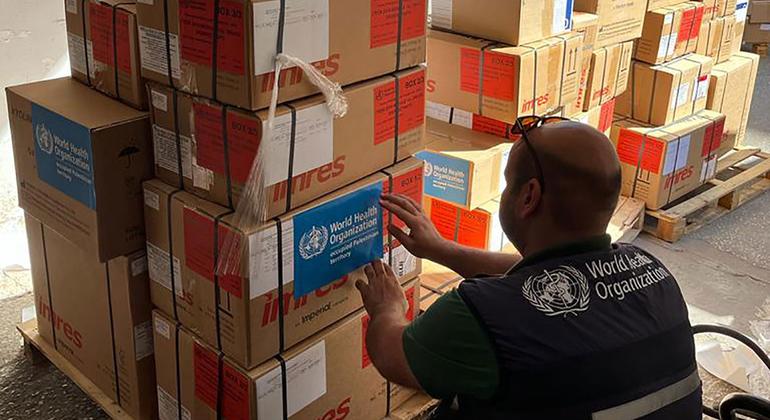Here’s the translation into American English:
—
The representative of the World Health Organization (WHO) in the Occupied Palestinian Territories, Rik Peeperkorn, has urged the opening of all border crossings in Gaza, two weeks after a ceasefire was implemented in the region. During a video conference from Geneva, Peeperkorn stressed that the situation is critical, especially with winter approaching, and emphasized the importance of ensuring access to food, shelter, and other basic necessities for the population.
Currently, only the Kerem Shalom and Kissufim crossings in southern Gaza are operational. The lack of access to the Rafah, Zikim, and Erez crossings limits entry to other affected areas, particularly in the north, where food insecurity has reached alarming levels and the healthcare system has been severely damaged due to the prolonged conflict.
Gaza’s hospital infrastructure is insufficient, with only 2,100 beds available for a population exceeding 2.1 million people. Additionally, several key medical facilities, such as Kamal Adwan, Al-Awda, Indonesian, and European hospitals, are currently out of service or inaccessible. In the wake of the conflict, over 170,000 people have been injured, and the WHO recently conducted its first medical evacuation since the ceasefire, transferring 41 patients and 145 companions to various countries. The goal is to carry out a total of 50 evacuations daily.
Peeperkorn also emphasized the need to restore medical corridors, suggesting that the best option would be access to referral hospitals in the West Bank and East Jerusalem. He also called for the reopening of the Rafah crossing to facilitate daily evacuations to Egypt and transfers through Kerem Shalom to Jordan and Israel. He expressed a desire for more nations to join in accepting patients for medical treatment.
Regarding humanitarian aid initiatives, Peeperkorn mentioned the recent establishment of a Civil-Military Coordination Center by the United States, aimed at accelerating the entry of humanitarian assistance. However, the WHO representative noted that significant issues still exist regarding the management of dual-use items, hindering the arrival of essential medical supplies. As an example, he cited the case of portable x-ray machines, whose authorization took 2.5 years to materialize.
The WHO has developed a list of essential medications and medical supplies, seeking swift approval to facilitate their entry. “We hope this ceasefire will hold, leading to peace and an appropriate political solution,” concluded Peeperkorn.
In northern Gaza, various humanitarian agencies have activated 38 distribution points benefiting approximately 320,000 people. Since the ceasefire began, over 20 nutrition centers have been established, including six in Gaza City, and therapeutic food boxes have been distributed to assist more than 1,200 children with acute malnutrition, in addition to over 32,000 jars of baby food.
—
Referrer: MiMub in Spanish










